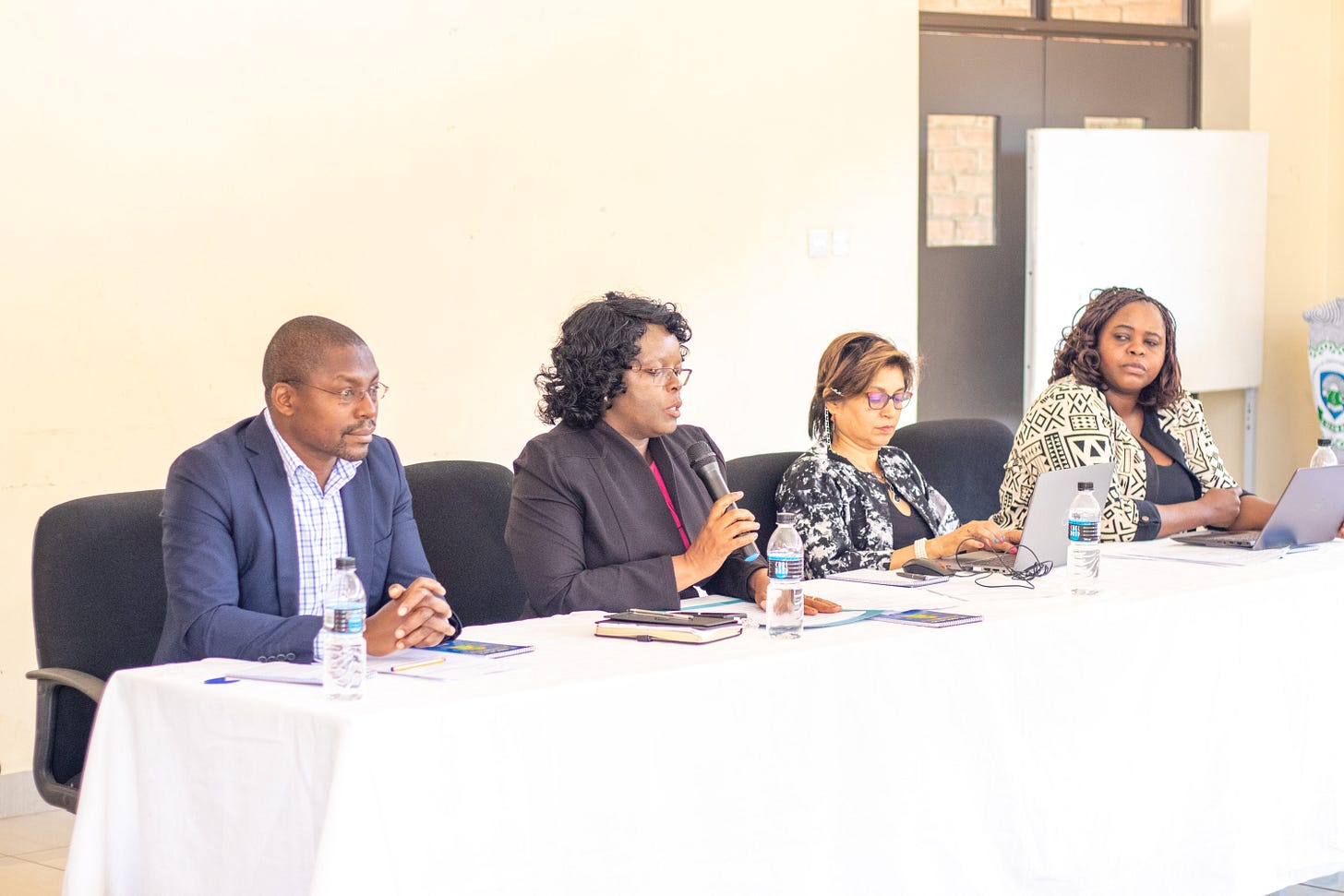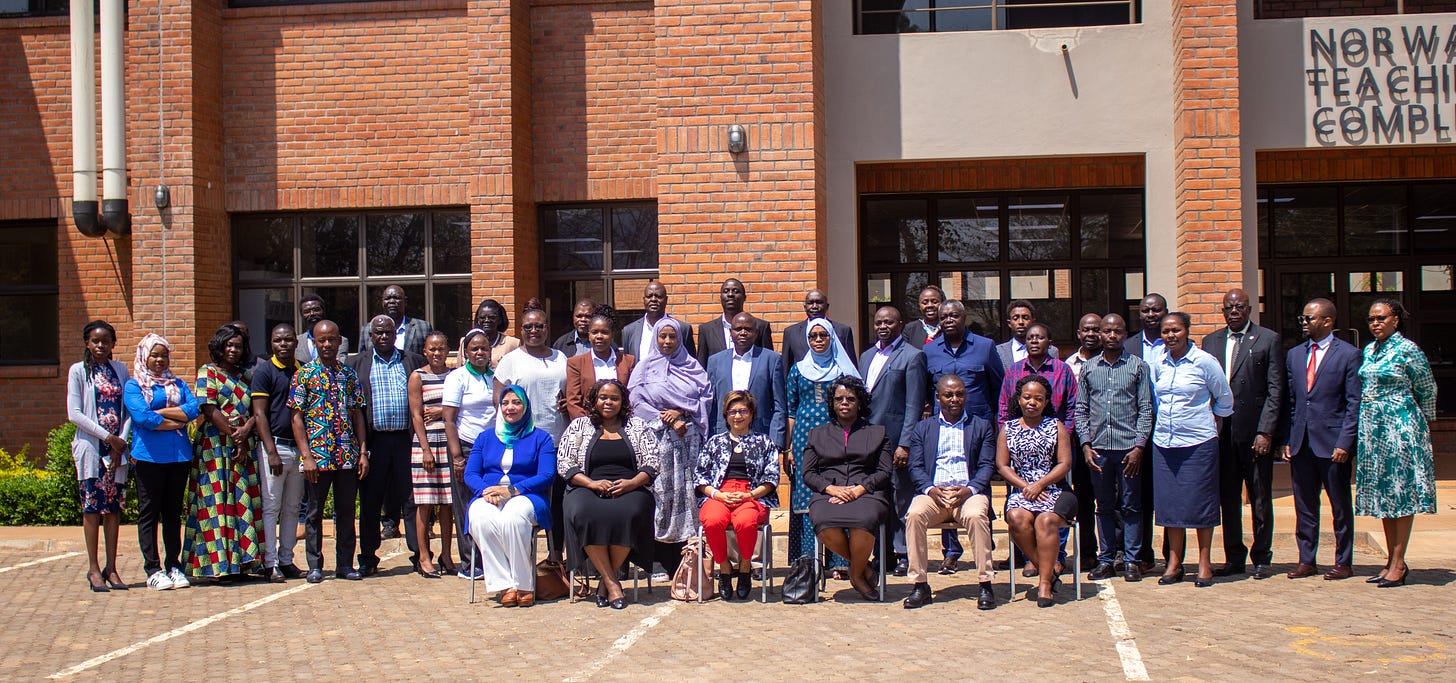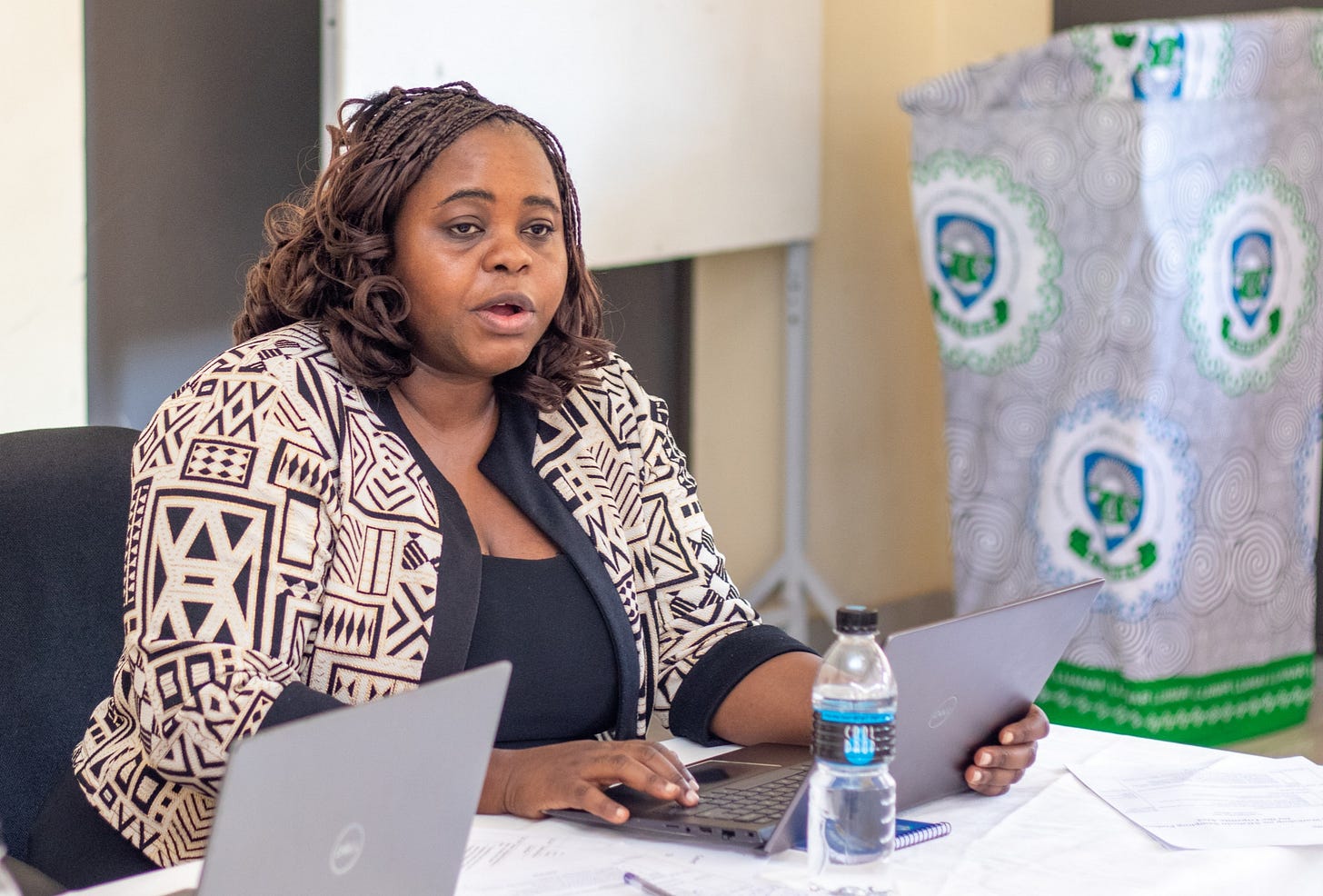AFLATOXIN CONTROL - Africa strategies on globally acceptable sampling protocols
Technical session on aflatoxin sampling protocols for maize and groundnuts was to provide hands-on training to initiate discussions on harmonized policies and regulatory frameworks on free trade

LILONGWE, Malawi (Planet Defence) - The African Union Commission (AUC) through Partnership for Aflatoxin Control in Africa (PACA) and representatives from three regional economic communities held a two day technical and policy experts on aflatoxin sampling protocols at Lilongwe University of Agriculture and Natural Resources (LUANAR) in collaboration with the Feed the Future Innovation Lab for the Reduction of Post-Harvest Loss.
The objectives of the technical session were to present aflatoxin sampling protocols for maize and groundnuts, to provide hands-on training to all participants, to initiate discussions on harmonized policies and regulatory frameworks, and develop a roadmap for drafting and validating a mutual recognition framework under the Africa Continental Free Trade Area (AfCFTA).
In her remarks LUANAR Deputy Vice Chancellor Dr. Agnes Mbachi Mwangwela thanked the collaborative efforts that brought the Southern Africa Development Community, Common Market for Eastern and Southern Africa (COMESA), East African Community, AUDA-NEPAD as the development agency and the African Union Commission.
“I am reliably informed that since 2013, United States Department of Agriculture, in partnership with North Carolina State University and COMESA, has worked diligently to develop sampling and testing protocols for maize and groundnuts. These protocols aim to strike a balance between trade facilitation and food safety, ensuring that our region's agricultural products can be exported with confidence to oversee markets,” Mangwela told the gathering at its main campus in Lilongwe.
More importantly she added, “The fact that this workshop is being hosted here at LUANAR is a source of great pride for us. At LUANAR, we are firmly committed to research, training, and outreach that address real-life challenges facing Malawi and our global community. Our lead facilitator, Prof Limbikani Matumba, exemplifies our institution's dedication to excellence in research and capacity-building,” a confidently speaking Mangwela touted the recently promoted academician who has done extensive research in aflatoxin.
The Vice Chancellor acknowledged that the platform accorded a space to reach a consensus on feasible sampling and testing protocols that are firmly rooted in scientific principles, thus balancing the interests of trade and consumer protection.
“Our efforts here will undoubtedly contribute to the acceleration of the AfCFTA, aligning with the African Union's theme of the year.

Threats by Aflatoxin
Aflatoxins are the most pervasive food safety problem in Africa, they are highly toxic fungal metabolites mostly found in cereals, nuts and oilseeds, and could naturally contaminate diverse foods and feeds.
In most African countries, maize and groundnuts are import staple and cash crops. Unfortunately, they are also highly susceptible to aflatoxin contamination. As a result, proper sampling and testing protocols for maize and groundnuts should be established across countries in order to ensure safe products are being imported and exported.
Sampling and testing are major conformity assessment procedures for identifying aflatoxin presence and contamination levels. Proper sampling and testing methodologies therefore should be used in order to minimize the impact of aflatoxins on the health of the people and animals as well as trade.
Wezi Chunga-Sambo, Senior Program Officer at African Union Commission, Department of Agriculture, Rural Development, Blue Economy and Sustainable Environment (ARBE) stressed that challenges presented by aflatoxins in Africa are precisely the reason the AUC has taken urgent actions such as establishing the Partnership for Aflatoxin control in Africa (PACA).
According to Chunga, PACA was established in October 2012 to support member states and regional economic communities to address the multi-sectoral challenges caused by aflatoxins. The move she added is meant to mitigate the impact of aflatoxins.
“In the next phase of implementation, we will take into account the important issues of regional trade through the inter-continental free trade area, by encouraging member states to develop harmonized standards and mutual recognition frameworks for aflatoxins in the region,” Chunga told the participants.

Acceptable Sampling Methods
Validated sampling methods is the most important step that contributes to the variability of analyses, due to the non-homogenous nature of aflatoxin distribution in foods and feed. Statistically sound sampling protocols are critical for establishing national aflatoxin monitoring programs for a food safety and regulatory environment.
If samples are not properly attained, compliant food or feed may erroneously be condemned and destroyed or non-compliant for human consumption and subsequently rejected (when importing countries identify them as uncompliant). In addition, aflatoxin contamination can lead to many serious health effects, such as cancer, liver disease, immune-system suppression, and stunting in children.
For example, the prevalence of aflatoxin contaminated maize samples ranged from 53.6% in Tanzania to 87.9% in Uganda; and in Malawi groundnut samples exceeding the Malawian regulatory limit range from 30 to 100% across the country.
The European Union has a certain threshold of 20 parts per billion of aflatoxin B1 that is acceptable. If the levels exceed that level consignment is barred from entering the market.
Experts hope that the training will be a stepping stone to support African member states in identifying feasible sampling and testing protocols that are based on proven scientific principles and that also provide a balance between minimizing trade restrictions and maximizing consumer protection. The result of which will enhance inter-continental trade through the Africa Continental Free Trade Area in line with the AU theme of the year on Accelerating Implementation of AfCFTA. Food safety has become an important pre-condition for access to global food markets and increasingly, for high-value domestic markets in Africa.
Additional reporting by TANDONG CALLISTUS JONG



